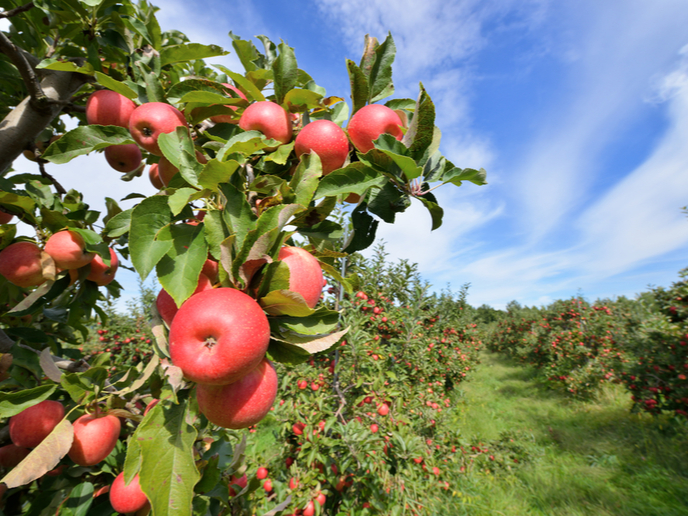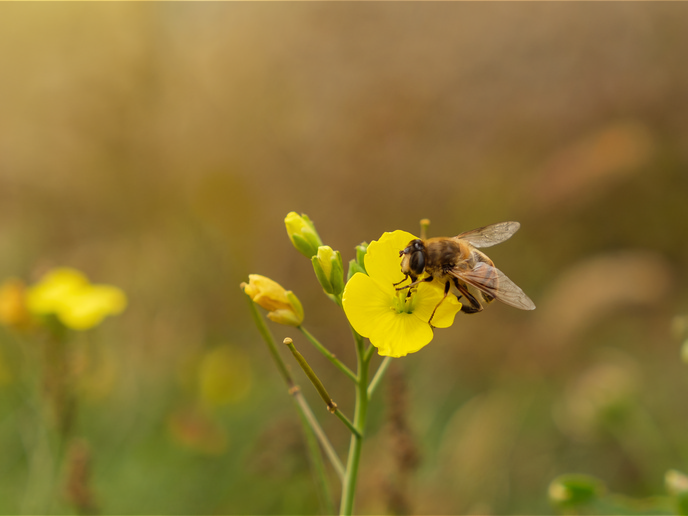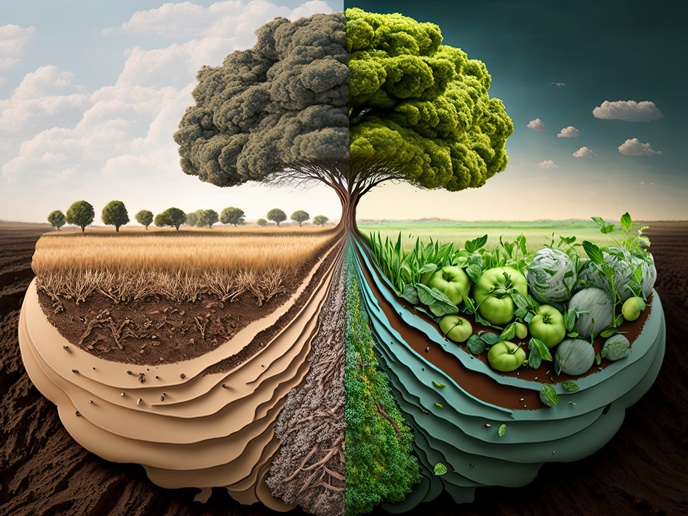Better topsoil for more sustainable apples
Producing apples destined for baby food is a challenging task, even for companies like Danone. The presence of pesticide residues cannot exceed 0.01 milligrams per kilogram of food. Food additives are under heavy scrutiny, and the maximum amount of contaminants allowed is up to 5 000 times lower than that of general food. But what if these challenges could be turned into an opportunity to bring safer food to everyone? HARVEST (Healthy Apples Research: Valuing Environmental Sustainability of Topsoil), a research project undertaken with the support of the Marie Skłodowska-Curie programme, embodies this proactive approach to consumer health. With this project focusing on apple production, Danone and its partners – farmers, Wageningen University and INRA – have been trying to create a truly regenerative agricultural system. “We have been applying two biodiversity practices in specific farming lands,” says Laura Martinez, coordinator of HARVEST. “The first approach consists of growing flower strips – mixtures of grasses and legumes – in between apple tree rows. The second reduces the use of mechanical weeding (mown and tillage) to avoid disturbing the soil structure and altering the soil microbial community.” While growing flower strips was already a known method to decrease above-ground pests without using pesticides, the benefits of such practice on soil quality are still unknown. Danone expects it to result in enhanced soil microbial biomass, enhanced carbon cycling, higher nutrient availability and greater abundance of fungi beneficial to the soil such as mycorrhiza and saprotrophs. Likewise, researchers have been testing no mown/no tillage practices while leaving plant residues to decompose below the tree canopy. “We expect the orchard to benefit from better soil structure. Besides, this should prevent evapotranspiration during summertime,” Martinez explains.
Better fruit from the ground up
With this combination of approaches, HARVEST brings about synergies between above-ground and below-ground benefits. It is the first research project to do so for agricultural systems, just like it innovates by using biological parameters such as microbial biomass, respiration and the fungal community as key performance indicators to improve nutrient cycling, water management and carbon storage. Traditionally, the sector would rather use chemical parameters to determine soil fertility. Now less than a year away from completion, HARVEST is off to a great start. “During the first year of the project we set up the research trials in two apple orchards, one in France and one in Czechia. We collected soil and tree roots to measure several parameters to assess soil health. These include soil microbial biomass and microbial catabolic profile, arbuscular mycorrhizal colonisation in apple trees, soil fungal community, soil nutrients availability and some others. This data is now currently under analysis,” adds Martinez. Besides these trials, Danone has been meeting with apple growers from Czechia and Poland, carrot farmers in France and Poland, and rice producers in Spain. Depending on project results, adaptation of the new practices to other crops and fruits like strawberries would soon be on the company’s agenda. “HARVEST is an important step in understanding the interconnectivity between soil, microorganisms and the final materials we have. It brings a quite innovative way of thinking and seeing the relation between the company activity and the environment,” Martinez notes. Back in 2017, Danone revealed its new tagline “One planet. One health.” The message was clear: healthy people and healthy planet go hand in hand. Eventually, this realisation could result in better food production models preserving our soils for the generations to come.







